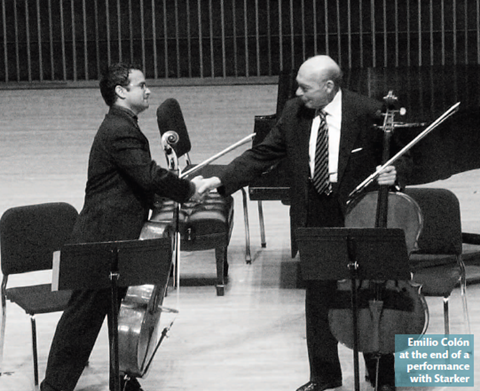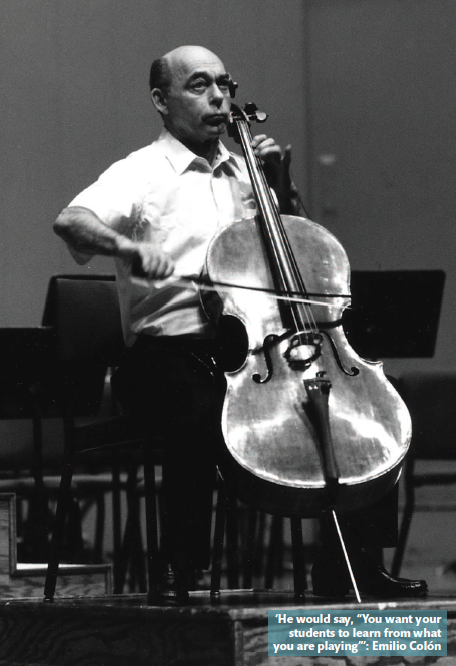2024 marks the centenary of the legendary cellist János Starker. Former student and assistant Emilio Colón shares his memories of Starker, in this tribute from the April 2014 issue of The Strad

Discover more Featured Stories like this in The Strad Playing Hub.
I will never forget my first lesson with Professor Starker, because I didn’t have it. He kicked me out of his studio without me playing a note. He thought I was late and tried to make a point. I said, ‘No, I’m here for a lesson,’ and finally he realised I was not going to back down. He said, ‘If you promise that you will be at your lessons at 9am for the rest of your semester you will be in my studio.’ I came the next week for a 9am lesson and played the Saint-Saëns Concerto for him.
He looked at me and said, ‘Why are you playing at this ridiculously fast speed?’ He started tearing me apart, taking an 18-year-old boy out of his comfort zone in order to mould a more responsible artistic view. The 9am spot didn’t last very much longer because he proved his point, I proved that I could be on time, and we returned to normality.
‘Without discipline there can be no art’ – those were his words. I came as a highly energetic young man. On a good day I could play well, but on a day I wasn’t feeling good, I didn’t play as well. He focused on the fact that there must be consistency in what one does and that cannot be dependent on one’s state of being. He would say that on any given day an amateur could play like the best professional but the next day they would play like an amateur. Professionalism is the ability to be completely consistent from day to day.

People from all over the world came to see him to solve specific physical problems relating to the instrument. He knew just what the person needed, and established a solution for each one. He would say he liked to fi nd the way to be fabulous. He didn’t want to be a coach, someone who says, ‘Why don’t you play a little louder here, a little faster here.’ He wanted to figure out how you could be problem- and pain-free for a lifetime.
He liked to allow everyone an individual voice. He didn’t want to give solutions that made people sound like him. So if you were working on Brahms he’d make sure you understood Brahms from the standpoint of the complete literature, be it an orchestral or chamber work, or a sonata.
When I became his teaching assistant he said, ‘When you play in class you must play like you are teaching. You want your students to learn from what you are playing, so you have to show them what solutions you found and how they apply to them.’ When I became part of the faculty we would get together when we were both in town, to talk about cello, students, life, everything. It was a wonderful relationship. His gift to teaching was his ability to give information to others in a way that they could teach themselves to be better cellists.
Read: Memories of János Starker 1924–2013
Watch: Cellist János Starker on interpretation
Discover more Featured Stories like this in The Strad Playing Hub.
The number one source for playing and teaching books, guides, CDs, calendars and back issues of the magazine.
In The Best of Technique you’ll discover the top playing tips of the world’s leading string players and teachers. It’s packed full of exercises for students, plus examples from the standard repertoire to show you how to integrate the technique into your playing.
The Strad’s Masterclass series brings together the finest string players with some of the greatest string works ever written. Always one of our most popular sections, Masterclass has been an invaluable aid to aspiring soloists, chamber musicians and string teachers since the 1990s.
American collector David L. Fulton amassed one of the 20th century’s finest collections of stringed instruments. This year’s calendar pays tribute to some of these priceless treasures, including Yehudi Menuhin’s celebrated ‘Lord Wilton’ Guarneri, the Carlo Bergonzi once played by Fritz Kreisler, and four instruments by Antonio Stradivari.













































No comments yet